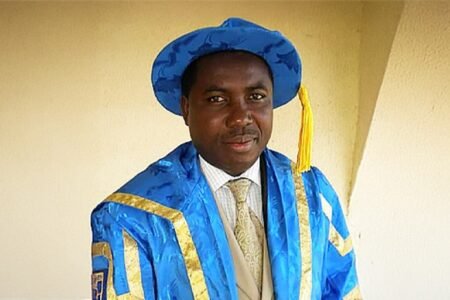In a political climate where sensationalism often overshadows substance, it has become increasingly common to see young, reform-driven leaders attacked, not for what they have done wrong, but for daring to do things differently, like Interior Nigeria’s minister.
The recent publication against the Honourable Minister of Interior, Olubunmi Tunji-Ojo, is a classic example of that unfortunate reality: long on accusations, short on evidence, and completely devoid of context.
Olubunmi Tunji-Ojo’s public service record speaks far louder than politically motivated commentaries. Within a short time at the Ministry of Interior, the ministry has witnessed the most comprehensive reform of Nigeria’s passport system in decades. For the first time, Nigerians can apply for, process, and track their passports online with transparency and predictability. Waiting times have been reduced; likewise, human contact, which was the root of exploitation through bribe demands, has been minimized. Nigerians both at home and in the diaspora now experience faster and more professional service.
Similarly, claims about low-standard e-gates being deployed at the country’s international airports are fictitious. While it is true that machinery is subject to occasional downtime — being dependent on network and data signals — the average time taken to scan passports at the airports is between 30 and 40 seconds, based on personal experience on two different occasions.
These are not mere claims; they are measurable outcomes that every ordinary citizen who has gone through the process can attest to. Countless testimonies available across social media platforms can easily confirm this. That is what reform looks like, it challenges vested interests, exposes inefficiencies, and inevitably draws resistance from those who benefited from the old system.
On prisons and internal reforms, the Ministry has launched the most ambitious correctional infrastructure renewal in recent years. Olubunmi Tunji-Ojo has worked to ensure that the change of name from “Prisons” to “Correctional Centres” goes beyond repainted signages and updated letterheads, he is striving to make these places true centres of reformation, transformation, and correction.
Through public-private partnerships, he raised over ₦500 million within four weeks to pay inmates’ fines, leading to the decongestion of correctional centres by 4,000 persons — the first of its kind in Nigeria’s history. Several outdated correctional facilities are being reconstructed to meet global standards, while digital records and inmate management systems are being modernized, something that was non-existent for years.
For the first time, there is coordination between the Ministry of Interior, the Nigerian Correctional Service, and other security agencies to address jailbreaks through technology and inter-agency response mechanisms. Those who accuse the Minister of “neglecting prisons” might wish to recall that the rot he inherited was decades deep, the product of years of underfunding and mismanagement. Rebuilding that system cannot be done overnight, but steady progress is being made.
Cases can also be made for the structural reforms in the Fire Service, which has seen the allocation of new firefighting trucks and other equipment, as well as in the NSCDC, which has established tactical teams to safeguard mining sites, thereby increasing revenue for the Federal Government. These achievements come alongside the promotion of over 52,000 service personnel across all paramilitary agencies under the Ministry of Interior. Clearly, if there is any semblance of unmotivated staff, it must be among the thieves and saboteurs who once exploited the system and robbed Nigerians blind. One might suspect that the writer of such falsehoods is among them or their beneficiaries.
The constant attempt to link every reformer to corruption or personal enrichment without proof is an old political trick, one that thrives on public cynicism. The EFCC has not charged the Minister with any crime, no court has indicted him, and no credible report has substantiated the wild claims circulating online. In a nation governed by law, allegations without evidence remain mere fiction.
Tunji-Ojo’s so-called “Starboy” reputation is not a product of propaganda but of performance. He embodies a new generation of public servants who understand that governance in the 21st century must combine innovation with accountability. He may not be perfect, no leader is but his results are verifiable, and his energy is undeniable.
As Nigerians, we must learn to separate criticism that builds from attacks that distract. It is perfectly fine to demand transparency and ask tough questions of public officials — that is democracy. But it becomes dangerous when we allow bitterness and rumours to drown out progress.
Tunji-Ojo represents a bridge between old politics and new governance, a symbol of what can happen when competence meets opportunity. And while his detractors are busy recycling old stories, he is busy delivering results that will outlive this political season.
History tends to vindicate those who stay focused on service, not noise.










